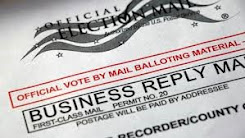us consider something about the election we can’t ignore –the danger democracy faced and escaped. The February 15/February 22 issue of Time Magazine includes a stunning report about the unprecedented effort by Americans of all political stripes to save the 2020 election. These Americans, first and foremost, wanted a fair election. Their objective was not engineering a victory for either side. The story hasn’t gotten the attention it deserves. According to Time, the key participants say they “want the secret history of the 2020 election told,” so we decided we’d help them get it out.
Molly Ball wrote “How Close We Came: The Secret History
of the Shadow Campaign that Saved the Election.” She details how business interests,
labor unions, and social activists made “sort of an implicit bargain” in which
they came together to “keep the peace and oppose Trump’s assault on democracy.”
It started with a man few people have heard of, Mike Podhorzer, and wound up involving hundreds of Americans from different
political orientations.
“keep the peace and oppose Trump’s assault on democracy.”
It started with a man few people have heard of, Mike Podhorzer, and wound up involving hundreds of Americans from different
political orientations.
Beginnings – Fall 2019

Four major concerns appeared early: (1)attacks on
voters, (2) attacks on election administration,
(3) attacks on Trump’s political opponents, and
(4) attempts at reversing a Democratic victory.
Podhorzer's group began working on these
problems before Biden clinched the Democratic
nomination and the Biden campaign never had a
real role in his efforts.
The COVID Bugaboo
Once the pandemic hit, it became clear conducting the 2020 election would pose
special problems. States including Ohio, New York, and Wisconsin experienced turmoil
in primaries because of poll-worker shortages, lack of polling places, and
delayed vote counts.
The pandemic dictated a major mail-in
Alliances
Ball writes extensively about the “strange bedfellows” the effort attracted. She notes that the
Once Trump’s post-election fraud claims went into overdrive, members of the group encouraged support from former elected officials for election administrators. In Michigan, for example, three former governors, Republicans John Engler and Rick Snyder and Democrat Jennifer Granholm, joined in calling for an electoral college tally free of White House pressure.
End GameThe Time story makes clear Podhorzer’s informal group anticipated the January 6 effort Trump and his supporters made
to interfere with the congressional tally of electoral college votes. The
left-leaning activists who were part of the alliance made things easier by
standing down in the face of the insurrection. They didn’t confront Trump’s mob
with a counter protest, which only would have made things worse, in part by letting
the right wing media offer a false equivalency narrative.
needed the kind of effort reported by Time both depresses and
encourages. It depresses, of course, that we had such a close call. It
encourages because Americans of all political persuasions stepped up and
preserved our democracy. The Time story is worth reading.


















